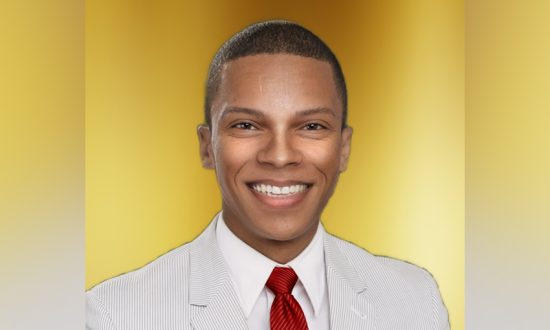Dr. Terrell Strayhorn is a Professor of Higher Education and Women’s, Gender & Sexuality Studies at Illinois State University. Author of 12 books and over 200 peer-reviewed journal articles, books, and reports, Strayhorn is one of the nation’s most prolific scholars with a leading voice on racial equity, human success, and a sense of belonging in education and employment. He is the Director of the Center for the Study of Historically Black Colleges and Universities (HBCUs) at Virginia Union University (VUU), Visiting Scholar in VUU’s School of Education, and a Lecturer in psychology. Member of the Children’s Defense Fund’s (CDF) Freedom Schools Research Advisory Committee and Diversity Scholar-in-Residence at Harrisburg Area College, Professor Strayhorn serves on several non-profit boards including Minds Beyond Measure.
It may be hard to believe, but it has been almost 3 years since virtually all the 4,300 colleges and universities in the United States (U.S.) were forced to pivot operations online, amid existential threats posed by COVID-19, the disease caused by a novel betacoronavirus (SARS-CoV-2). In early 2020, the World Health Organization (WHO) declared COVID-19 a global pandemic, and rightfully so—at the time of this writing, there are more than 653.8 million confirmed cases globally and, within the U.S. alone, almost 100 million cases and over 1 million deaths, according to the Coronavirus Research Center at Johns Hopkins University.
The impact of COVID-19 on higher education has been felt in other ways such as record-breaking rates of unemployment, work-related stress (e.g., “Zoom fatigue”), mental health issues, and declining student enrollments, especially at open- and broad-access institutions. Even when they do enroll, upwards of 32-40% of U.S. college students at 4-year public and private institutions stall or stop the pursuit of their academic plans before degree completion, referred to as stopping- and dropping out in the research literature.
To that point, the National Student Clearinghouse’s Research Center recently reported the national 6-year college completion rate is just 62.3%, virtually unchanged from prior years. Controlling for modest 1-point gains, state completion rates have flat-lined at the same time that the gender gap continues to grow steadily. Perhaps surprisingly, these trends persist despite significant policy changes (e.g., free tuition, Pell grants) and sizable investments in promising practices such as intrusive advising, accelerated pathways, emergency grants, male initiatives, and psychosocial interventions, to name a few.
While theoretically supported, much more information is needed about popular practices from in-depth qualitative projects, causal studies, and trials in terms of “what really works” for moving the needle on college completion. Rooted in recognition of this urgent need, the American Institutes for Research (AIR) College Completion Network (CCN) invited leading education researchers, practitioners, and policymakers from across the country to the National Press Club in Washington, DC on December 13th and 14th for the Moving the Needle on College Completion Convening.
The two-day conference—which, by definition, is a purposeful gathering of like-minded individuals for focused dialogue that leads to consensus and change—consisted of concurrent breakout sessions, moderated interactive panels, funder remarks, and an engaging keynote address by Dr. Tia Brown McNair, Vice President of Diversity, Equity, and Student Success at the American Association of Colleges and Universities (AAC&U) titled, “Building Our Knowledge Base for Student Success: Realities, Opportunities, and Capacity.” Lead author of two books—From Equity Talk to Equity Walk (2020) and Becoming a Student-Ready College (2020)—McNair challenged the packed room of attendees to “be honest…[and] keep it real” as they consider the role that race, class, gender, and other protected identities play in shaping the effectiveness of certain policies, programs, and practices. She concluded that “equity-minded approaches to our work are necessary” to document what works in supporting pandemic recovery and college completion, especially for our most vulnerable populations.
Dr. Eric Bettinger, Director of the Center for Educational Policy Analysis at Stanford University and principal investigator for CCN, which is supported by funds from the Institute for Education Sciences (IES) at the U.S. Department of Education (DoE), kicked off the first day with a “framing conversation,” focused on the network’s growth over time. Two IES representatives were present—IES Director Dr. Mark Schneider and IES Program Officer Dr. James Benson—each delivering remarks affirming the timeliness of the gathering. Given the importance of high-quality federal data, like that provided through DoE’s National Center for Education Statistics (NCES), Schneider urged participants to “reach out, email, contact [us]…we need your input.”
Other sessions explored a wide range of topics, ranging from intrusive advising, student navigation, financial aid, and mindsets to developmental education, targeted interventions, and future work. For instance, one concurrent session titled “Mindsets and Psychosocial Interventions” was moderated by Rashida Welbeck, Senior Associate at MDRC (formerly, Manpower Demonstration Research Corp). Drawing on research showing that mindset and other factors, like sense of belonging, positively affect college completion, Welbeck and Dr. Greg Walton, Professor of Psychology at Stanford, called attention to applying the best evidence available to campus plans for scaling single interventions to serve larger groups of students.
After a boxed lunch, concurrent breakout sessions resumed. Dr. Denise Bartell, Associate Provost at Kent State University, moderated one session titled, “Targeted Interventions to Promote Equity,” with three panelists (in alpha order): Drs. Kayla Elliott, Director of Higher Education Policy at The Education Trust; James Minor, Chancellor at Southern Illinois University, Edwardsville; and Lashawn Richburg-Hayes, Vice President at Westat Insight. Among other things, panelists like Minor urged participants “to pay close attention” to issues of design, the fidelity of implementation, “but most importantly, to students and their voices…that’s what really matters.”




